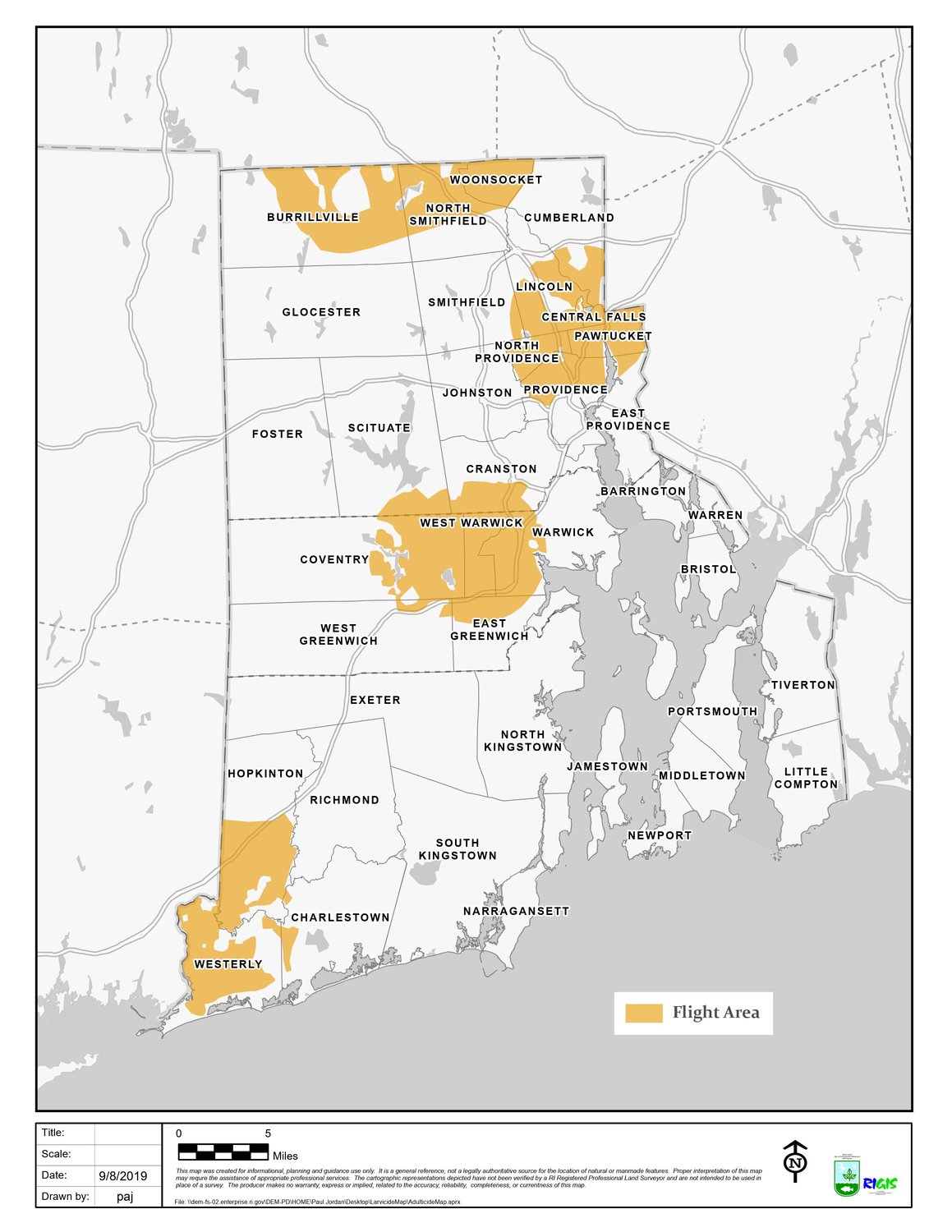State sprays part of East Providence to quell EEE virus outbreak
Mosquito-born illness have been discovered around Rhode Island
PROVIDENCE – A small swathe in the northwest corner of the city abutting the Seekonk River was among the areas sprayed late Sunday evening, Sept. 8, by the state in an attempt to quell the …
This item is available in full to subscribers.
Please log in to continue |
Register to post eventsIf you'd like to post an event to our calendar, you can create a free account by clicking here. Note that free accounts do not have access to our subscriber-only content. |
Day pass subscribers
Are you a day pass subscriber who needs to log in? Click here to continue.
State sprays part of East Providence to quell EEE virus outbreak
Mosquito-born illness have been discovered around Rhode Island
PROVIDENCE – A small swathe in the northwest corner of the city abutting the Seekonk River was among the areas sprayed late Sunday evening, Sept. 8, by the state in an attempt to quell the further outbreak of the EEE (Eastern Equine Encephalitis).
The Department of Environmental Management (DEM) and the Rhode Island Department of Health (RIDOH) announced the operation to disperse aerial mosquito treatments in four areas officials have assessed to be at critical risk for the EEE virus started on time and is on schedule.
A fixed-wing, King Air Beechcraft plane crewed by state pilots has treated an area including all West Warwick and parts of Coventry, Cranston, Warwick, East Greenwich, and West Greenwich. The mild weather Sunday night allowed the crew to complete treatment in a highly populated zone including all of Central Falls, Pawtucket and North Providence as well as portions of East Providence, Providence, Smithfield, Lincoln and Cumberland.
The operation continued into the overnight hours with the crew also trying to complete spraying an area in northern Rhode Island including parts of Burrillville, North Smithfield and Woonsocket.
The aerial spraying operation was set to resume for a zone in southern Rhode Island including parts of Westerly, Hopkinton and Charlestown Monday evening, Sept. 9.
The determination of critical risk was made based on results of mosquito samples in Rhode Island, Massachusetts, and Connecticut; and cases of EEE in mammals in Rhode Island. There has been one human case of EEE in Rhode Island this year and one horse has tested positive. EEE is a rare but serious and potentially fatal disease that can affect people of all ages. RIDOH confirmed the state’s first human case of EEE – in a person over the age of 50 from West Warwick – on August 30. Two mosquito detections of EEE have occurred in Central Falls and two have occurred in Westerly. The state’s transmission in a horse, announced August 29 by DEM, also originated in Westerly.
The pesticide applied, Anvil 10+10, is being used at very low concentrations. Spraying is only being done during calm periods, with winds less than 10 miles per hour. This helps prevent the pesticide from drifting beyond targeted areas. Spraying will not occur over fish hatcheries, certified organic farms, surface drinking water supplies, and other open water bodies and coastal areas. Massachusetts officials used the same product in recent aerial spraying in Bristol, Plymouth, Worcester, and other counties. Anvil is registered by the US Environmental Protection Agency (EPA) and in Rhode Island and Massachusetts for this use. The purpose of this application of pesticide is to kill adult mosquitoes as they are flying around in the air. Because mosquitoes are cold-blooded and cannot regulate their internal temperatures, anything colder than 58 degrees will cause adult mosquitoes to hunker down, limiting the effectiveness of the spraying.
While spraying is occurring, it is best to err on the side of caution and limit time outdoors and keep your windows closed. The product being sprayed is being used at very low concentrations. No adverse health risks are expected with its use for mosquito control. However, it is generally good for people to limit their exposure to pesticides.
More information on health and spraying is available at http://www.health.ri.gov/disease/carriers/mosquitoes/about/spraying/. For FAQs on the impact of spraying on pets and livestock, click http://www.dem.ri.gov/programs/agriculture/mosquito-control.php.






